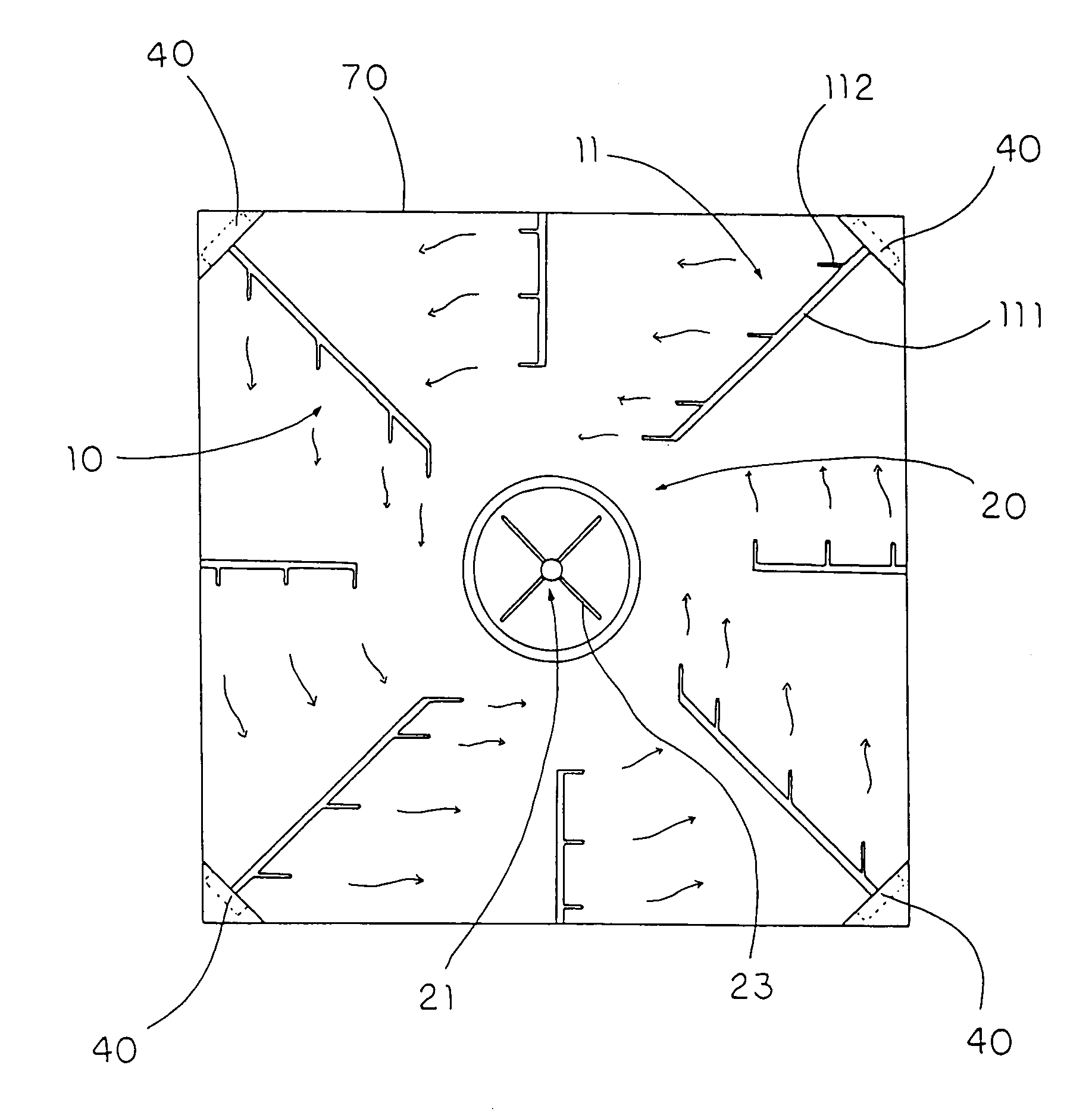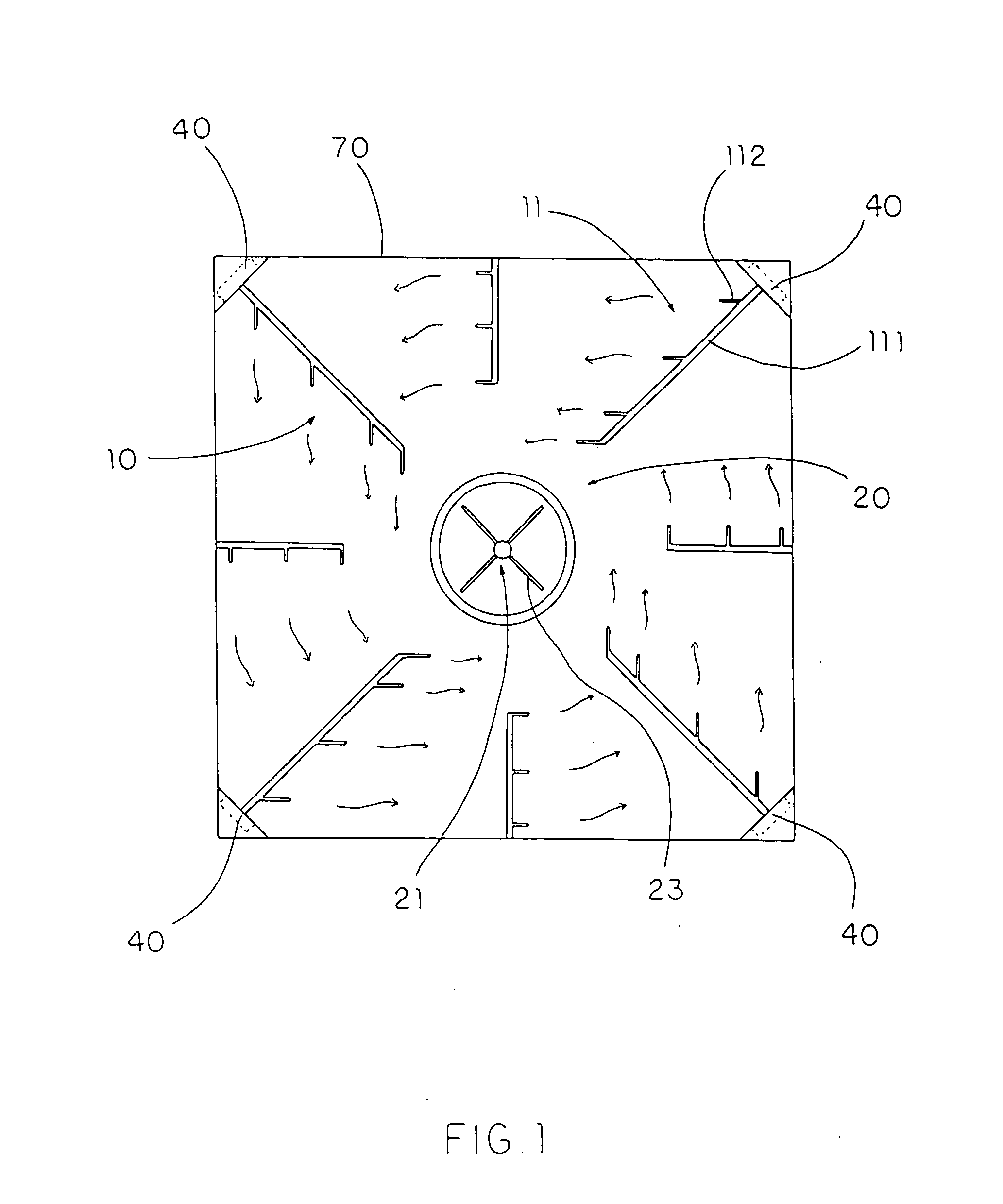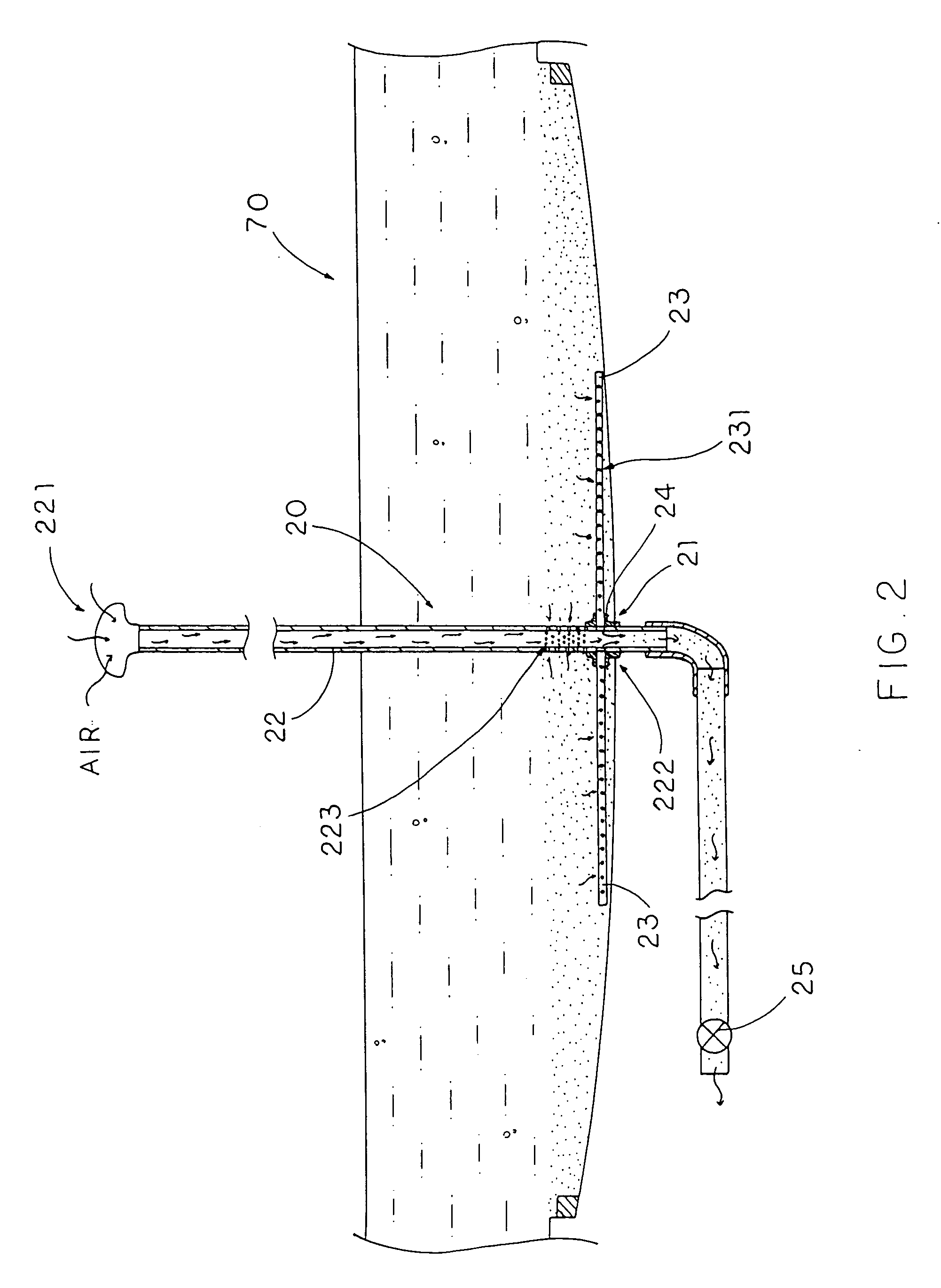Water treatment system for water animal feeding facility
a water treatment system and water animal technology, applied in the field of water treatment system, can solve the problems of ineffective and inefficient water filter arrangement, water animal feeding facility type, and low rate of water filtering with respect, so as to facilitate air exchange of water and efficiently and effectively discharge aquatic waste.
- Summary
- Abstract
- Description
- Claims
- Application Information
AI Technical Summary
Benefits of technology
Problems solved by technology
Method used
Image
Examples
Embodiment Construction
[0033] Referring to FIG. 1 and FIG. 2 of the drawings, a water treatment system according to a preferred embodiment of the present invention is illustrated. The water treatment system, which is provided for a water animal feeding facility comprising a pond 70 containing a predetermined amount of water, comprises a waste collection arrangement 10 and a waste disposal arrangement 20.
[0034] The waste collection arrangement 10 is disposed in the pond 70 for generating a centripetal force within the pond 70 to centripetally collect waste contained in the water of the pond 70. More specifically, the waste collection arrangement 10 is disposed in the pond 70 for swirling the water to form a funnel-shaped water vortex so as to collect waste contained in the water of the pond 70 at a base of the water vortex.
[0035] The waste disposal arrangement 20 has an outlet 21 positioned in the pond 70, and comprises a suction pipe 22 upwardly extended from the outlet 21 at a position above a water le...
PUM
| Property | Measurement | Unit |
|---|---|---|
| centripetal force | aaaaa | aaaaa |
| pressure | aaaaa | aaaaa |
| diameter | aaaaa | aaaaa |
Abstract
Description
Claims
Application Information
 Login to View More
Login to View More - R&D
- Intellectual Property
- Life Sciences
- Materials
- Tech Scout
- Unparalleled Data Quality
- Higher Quality Content
- 60% Fewer Hallucinations
Browse by: Latest US Patents, China's latest patents, Technical Efficacy Thesaurus, Application Domain, Technology Topic, Popular Technical Reports.
© 2025 PatSnap. All rights reserved.Legal|Privacy policy|Modern Slavery Act Transparency Statement|Sitemap|About US| Contact US: help@patsnap.com



